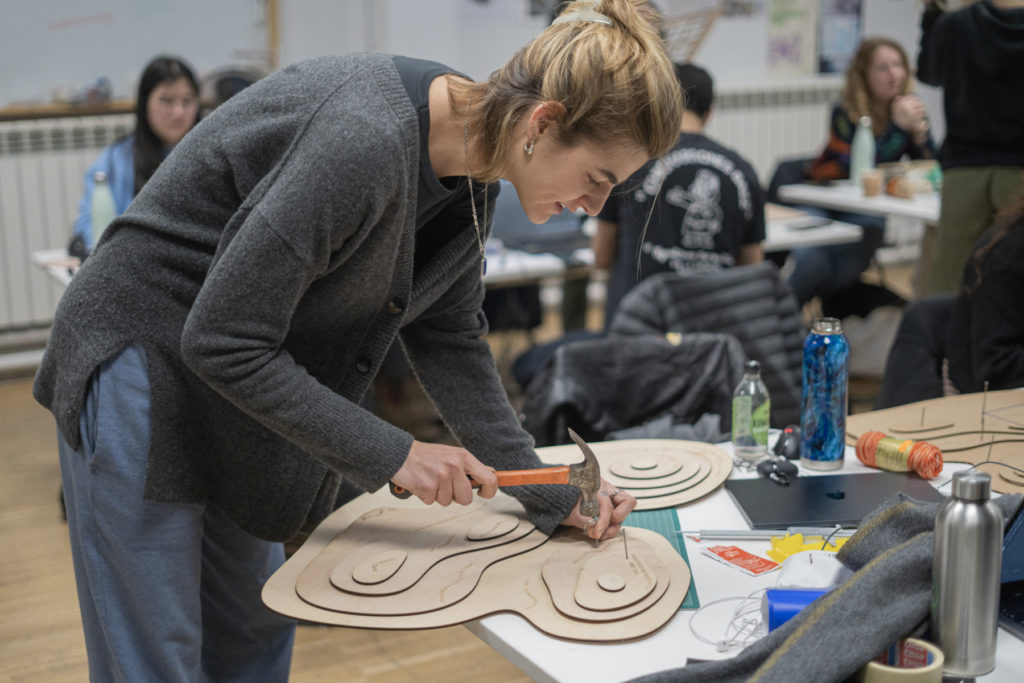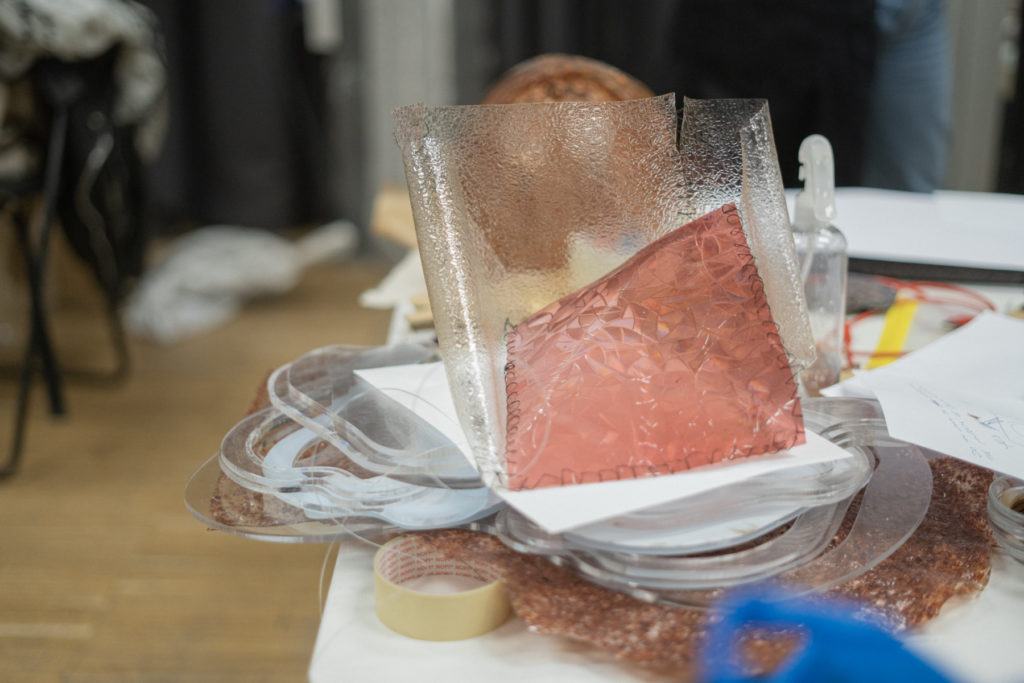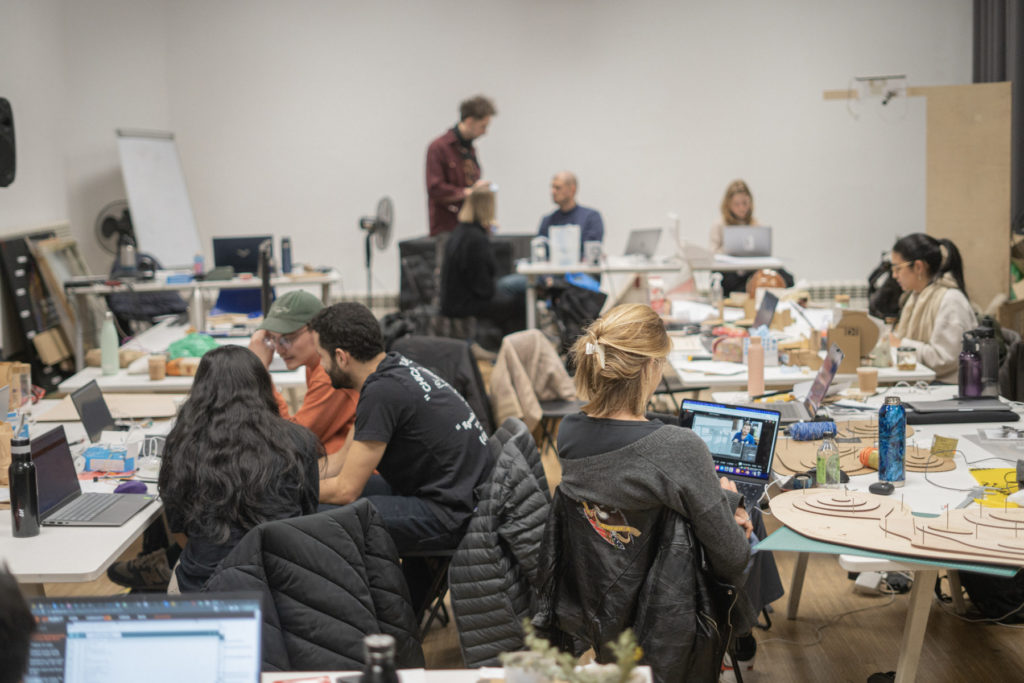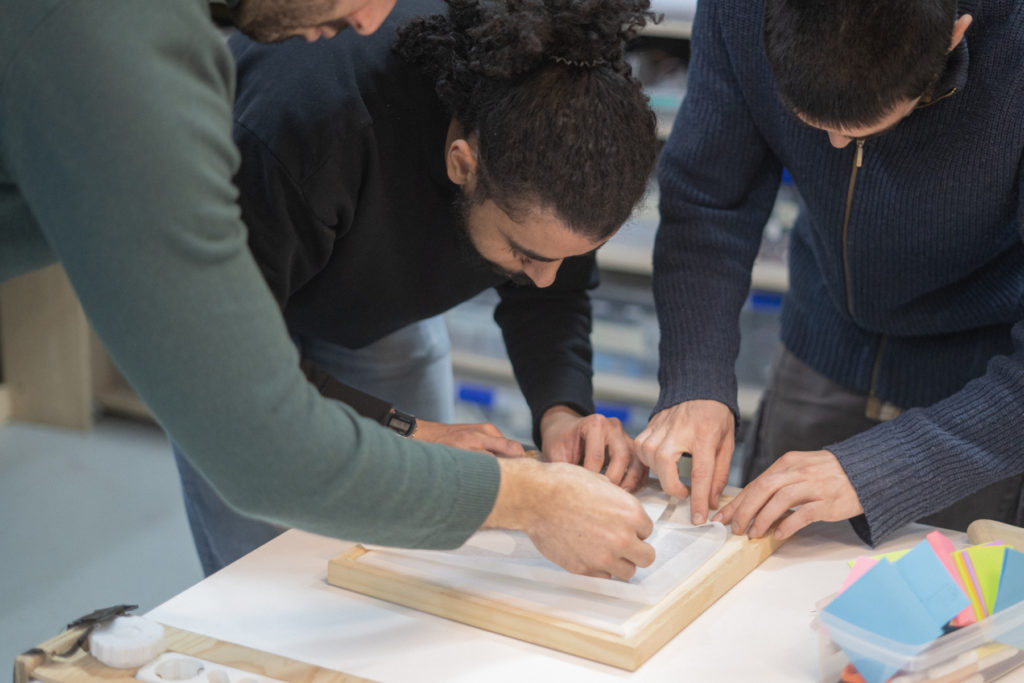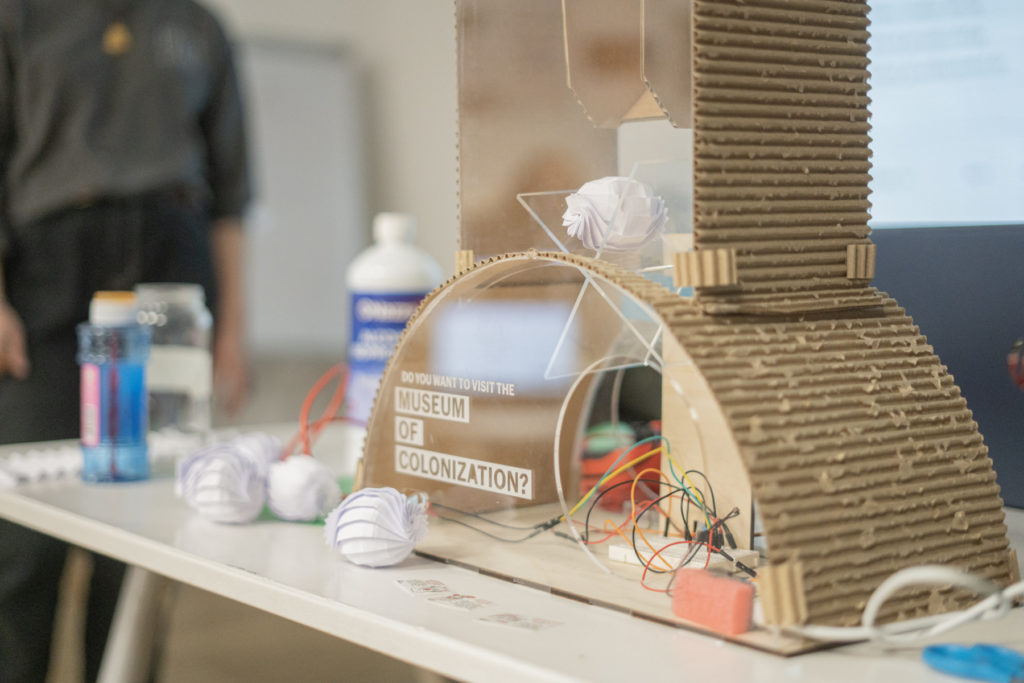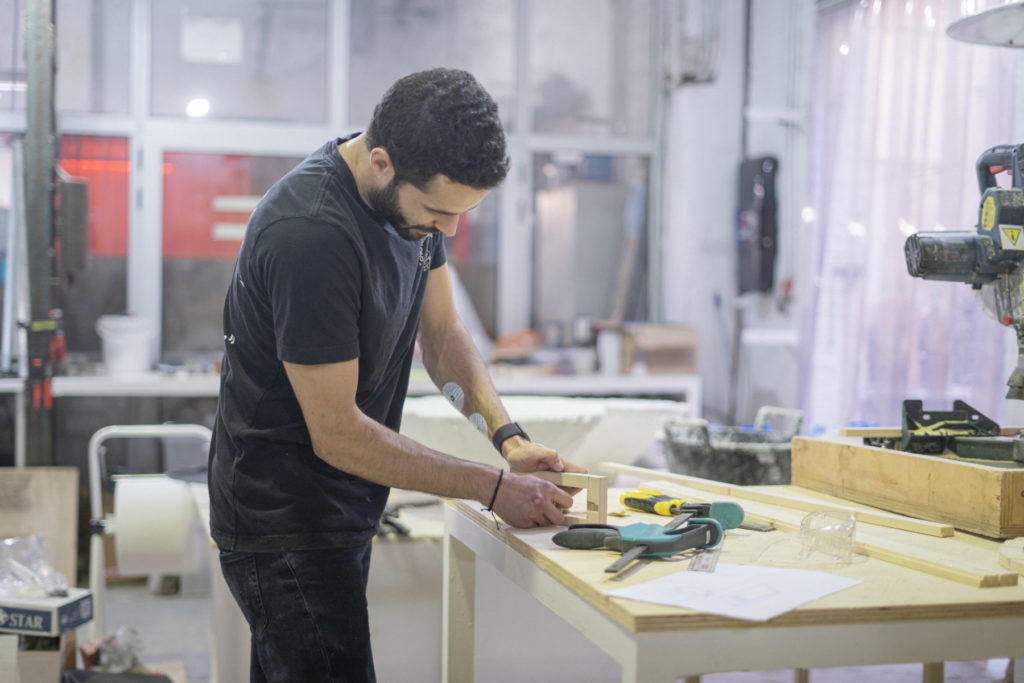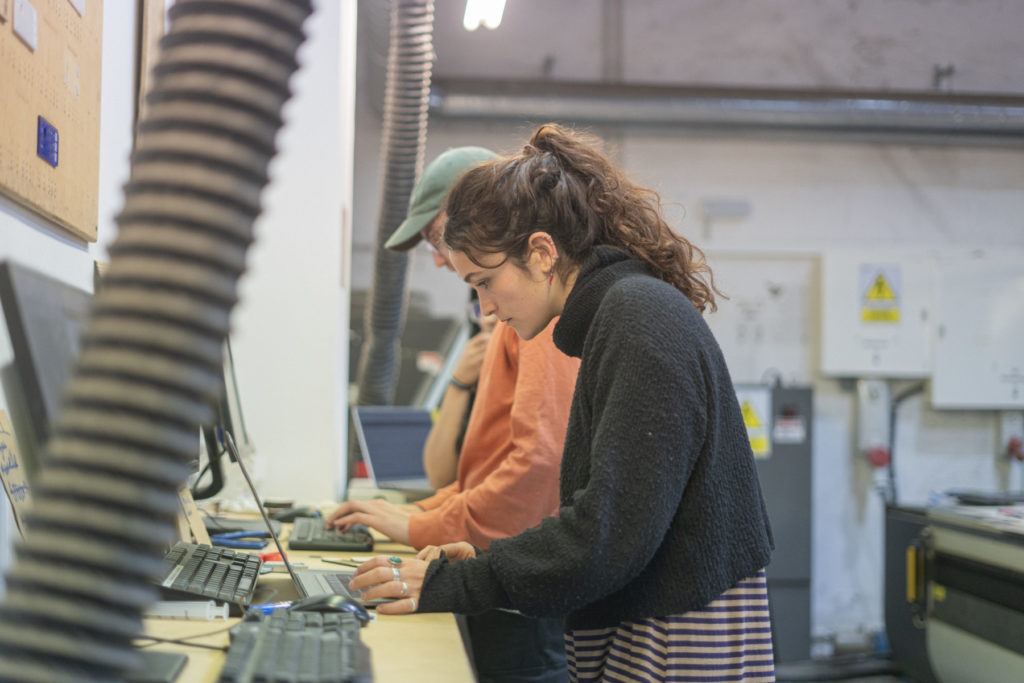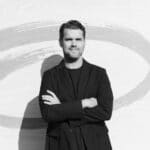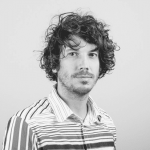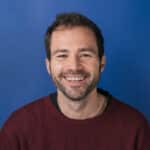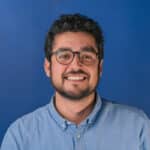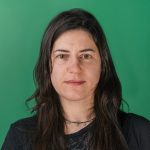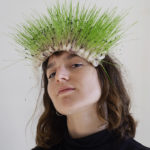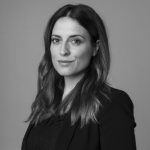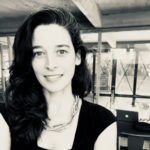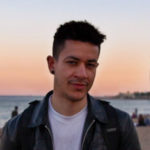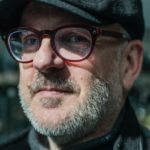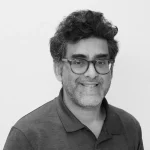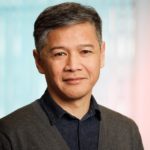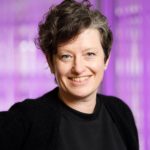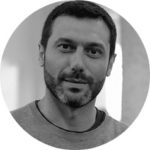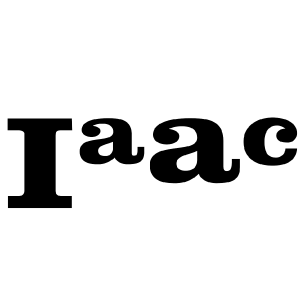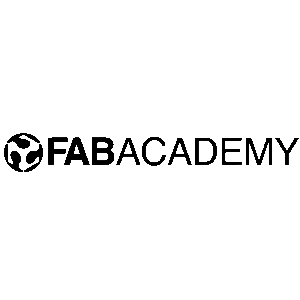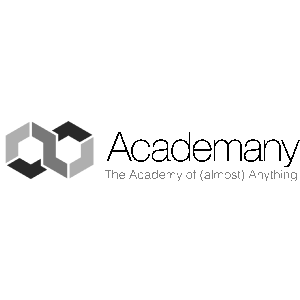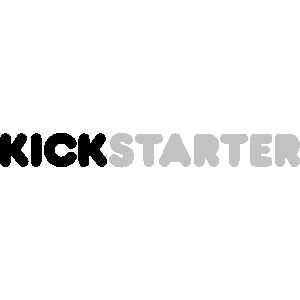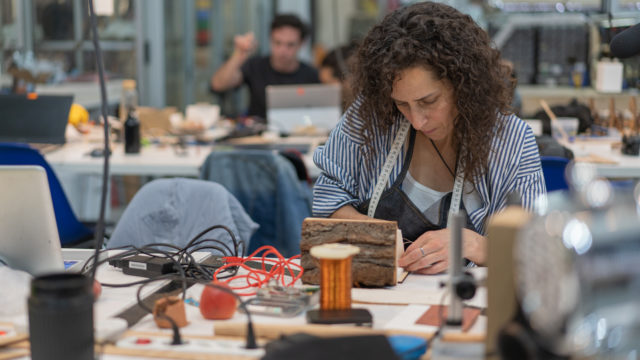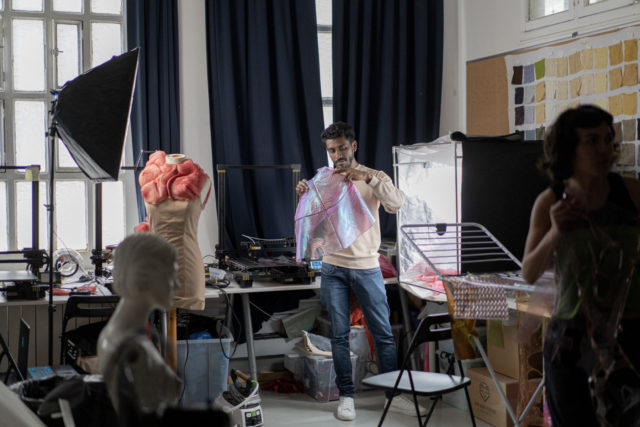
Master in Design for Emergent Futures
Challenge the Way Things Work Today, Design for Tomorrow
Turn ideas into prototypes, platforms, actions and interventions to transform the current state of society. Through digital fabrication, synthetic biology, Artificial Intelligence (AI), hardware design, computational thinking, blockchain and more, the Master in Design for Emergent Futures (MDEF) is dedicated to scaling up the impact of maker practices. Reimagine how design can be central to enacting a paradigm shift towards preferred plural futures. A multidisciplinary Master program organised by the Institute for Advanced Architecture of Catalonia (IAAC) and ELISAVA Barcelona School of Design and Engineering, in collaboration with Fab Lab Barcelona and the Fab Academy.
MDEF 01
First year of the program
Course Length
From October 2023 to June 2024
09 Months – Immersive and Full Time
Tuition Fees
Non-EU: 23.850€
EU: 19.800€
Spanish: 11.925€
Where?
Fab Lab Barcelona – IAAC & Elisava, Barcelona School of Design and Engineering
Language
English
Edition
7th edition
Credits
90 ECTS
Admission Requirements
Bachelor or higher degree in Industrial Design, Product Design, Architecture and Urban Design, Graphic Design, Interaction Design, Computer Science, Engineering (Mechanical, Chemical, Product, Material), Sociology, Anthropology, Economy, and related professions.
MDEF 02
Second year of the program
Course Length
From October 2023 to June 2024
18 months (09+09)
Immersive and Full Time
Tuition Fees
Non-EU: 31.800€
EU: 26.400€
Spanish: 15.900€
Where?
Fab Lab Barcelona – IAAC & Elisava, Barcelona School of Design and Engineering
Language
English
Edition
2nd edition
Credits
120 ECTS
Admission Requirements
Bachelor or higher degree in Industrial Design, Product Design, Urban Design, Graphic Design, Interaction Design, Computer Science, Engineering (Mechanical, Chemical, Product, Material), Sociology, Anthropology, Economy, and other professions
Presentation
The Master in Design for Emergent Futures (MDEF) is a multidisciplinary course that focuses on turning ideas into prototypes, platforms, actions and interventions to transform the current state of society. On analysis of the current global state of affairs and societal challenges, students are encouraged to produce platforms, products and deployments that aim to respond to emergent futures.
Our method is to propose small-scale interventions to approach large-scale challenges, in order to dissolve wicked problems, instead of solving them with single moonshot solutions.
The Master program has four stages: Exploration, Instrumentation, Reflection and Application. These four steps provide designers with the strategic vision and tools to work at multiple scales in the real world. The theoretical and practical content in the program recognises and explores the possibilities of disruptive technologies: digital fabrication, blockchain, synthetic biology, Artificial Intelligence (AI) and more.
Academic Structure
MDEF 01
The Master in Design for Emergent Futures is organized into three terms: Oct-Dec, Jan-Mar, Apr-Jun. Each term includes design studios, seminars and expert masterclasses. A research trip is also offered by the master, previous trips have been to Shenzhen, China, Cuba, Mallorca and El Hierro islands.
Design Studio sessions are central to the program. They focus on real-world experimentation and socio-technical development. During the year, students develop technical, aesthetic and conceptual skills by working on real-life scenarios. Design studios encourage students to be creative and innovative.
Seminars delve into specific domains of knowledge and are delivered by relevant expert practitioners and scholars. Throughout the academic year, international experts from the fields of design and emergent technologies, including artificial intelligence, synthetic biology, blockchain and digital fabrication, contribute to the program as guest lecturers.
The program provides advanced digital fabrication instruction through collaborative classes together with Fab Academy. Fab Academy is directed by Neil Gershenfeld of MIT’s Center For Bits and Atoms and based on MIT’s rapid prototyping course, MAS 863: How to Make (Almost) Anything. The collaborative classes offer MDEF students with a unique, hands-on curriculum and access to technological tools and resources based on a distributed educational model.
The program has four conceptual pillars:
 Instrumentation
Instrumentation
Students learn a modular set of maker skills and tools and how these can be used in the design process to translate their ideas into prototypes and prototypes into products. Skills include coding, digital fabrication, hardware design, synthetic biology, and computational thinking.

Exploration
Students are exposed to a set of technologies and sociocultural phenomena that have the capacity to disrupt our present understanding of society, industry and the economy.

Reflection
Students are supported through individual and group reflection sessions to develop their own identity and skill set, knowledge and attitude as designers.
Application
Students create design responses to explore their curiosities through innovation. They are encouraged to be creative and follow a culture of making where prototyping acts as a generator of knowledge and experimentation is crucial for problem solving.
MDEF 02
The second academic year of the MDEF allows students to deepen their training and further develop the final Thesis Project presented at the end of the first academic year. It also allows students to continue their research and innovation agendas using a multiscalar, experimental and realistic approach, and turning the final projects developed in the first year of the program into living platforms for academic research, business development or direct impact on open source communities.
The Thesis Project design workshop is the backbone of the MDEF02 program. That is why we have three types of Thesis Project, related to each quarter of the program, and each with its specific objectives.
Implementation: The first Thesis Project design workshop is focused on reinforcing the implementation of the projects that have been developed in the first year of the program. To achieve this objective, tutorials will be carried out with the directors of the master’s degree, directors of the study workshop, and invited experts. The tutorials will be focused on reinforcing the ability to articulate innovation projects in the real world, and on being able to incorporate the knowledge acquired during the program.
Validation: This design workshop is focused on developing a series of strategies during the implementation of the final master’s project for its economic, environmental, social, and communicative assessment. Through an iterative design process, and applying impact measurement methodologies, the student will be able to collect and analyze evidence that allows strategic decision-making within the different aspects of the final master’s project.
Dissemination: The third design workshop is focused on developing the communication and dissemination actions of the final master’s project. Within these strategies, dissemination in the academic field is contemplated, as well as communication strategies related to traditional and innovative media, both in the digital field, such as print or performative.
At the end of the second year we hope that the students have developed their projects within the framework of the following guidelines:
Academic orientation
CTS credits and continuation of the academic career through other Master or Doctorate programs.
Business Orientation
Development of a business structure around a product or service.
Collective Orientation
Implementation of an accessible technological development for open source communities.
Emergent Futures
Why design Emergent Futures?
We are living in a moment of rapid transition. From this moment on, we will need to design for a different world to what we have known. We need to incorporate new skills to work in a hyperlocal world that is hyper-connected. The Master in Design for Emergent Futures is a journey into designing for complexity, uncertainty and possibility. The futures we want tomorrow are enabled by the actions we take today.
The Design for Emergent Futures approach
MDEF is both a theoretical and practical program, that engages the expertise of Fab Lab Barcelona, IAAC and Elisava, Barcelona School of Design and Engineering It evolves the practice of design beyond objects, aesthetics, form-finding and pure speculation through a unique hands-on learning approach. Our method uses design processes to investigate complex systemic problems and proposes city-scale interventions to approach large-scale challenges. The Master has four pillars: Exploration, Instrumentation, Reflection and Application. These provide a structure for personal and professional exploration and build the strategic vision and flexible skillset to design in uncertain times.
Students develop their technical capabilities through the global Fab Academy program. This program equips students with working knowledge across the multiple disciplines of a Fab Lab from coding to digital fabrication. By the end of the Master, students will be competent in a range of technical skills which they can apply to their final projects. At the same time, MDEF asks students to critically engage with the fields of speculation and foresight studies; they assess the role of disruptive technologies such as digital fabrication, blockchain, synthetic biology, Artificial Intelligence in the current transformation of society. Critically analysing our today helps students design for the futures that are emerging.
The practical and theoretical aspects of the Master are combined to develop a portfolio of strategies, reflections and prototypes as well as a final project. The investigation is situated in the real world, often Barcelona city, where students can collaborate with local stakeholders to apply their knowledge to human-centered needs. The final project is a ‘design intervention’, that is, a solution or response in the form of a product, platform or deployment. Working on hyperlocal interventions gives students a tangible design output that responds to a trend that is emerging at a global level and challenges the potential impact of technology in business, education, society and culture. Student interventions have ranged from urban environmental health and wellness strategies to circular fashion systems.
Previous graduates of MDEF have proceeded to work in the subjects in which they specialised during the master’s. Specialist subjects ranged greatly – from understanding democratic governance and trust; questioning our food systems and how they will look in the future; new material development through synthetic biology; training fungi to consume chemical composites amongst many other varied topics facilitated by the unique environment created by the Master and Faculty.
The Master in Design for Emergent Futures approach has been developed out of the Exploring Emergent Futures platform at the Royal College of Art, London, a program developed by James Tooze and Tomas Diez since 2015. MDEF is dedicated to scaling up the impact of maker practices and reimaging how design can be central to enacting a paradigm shift towards preferred plural futures.
An innovative environment
MDEF is physically located at IAAC in the heart of the innovative Poblenou neighbourhood. Fab Lab Barcelona provides the technical infrastructure that students are free to use under the guidance of in-house experts. This includes the Fab Lab, machine shop and spaces for bio and food exploration. Fab Lab Barcelona also generates a professional connection with local craftspeople, innovators and designers who have previously enriched student projects through collaborations and internships including with LEKA Restaurant, Open Cultural Center and Nomad Coffee.
MDEF is co-delivered by ELISAVA Barcelona School of Design and Engineering, the pioneer academy in this field in Spain, with more than half a century of experience. Founded in 1961, it promotes education, knowledge, research, development and innovation on design. Through the relationship with businesses, institutions and society, ELISAVA trains its students to encompass professional challenges in an international context and it also delves into practical work and stimulates critical reflection among them, so they finish their studies with the ability to answer the needs of an evolving society.
With a view to the future, MDEF has developed a multi-model program that incorporates digital and physical spaces; local and global infrastructures. From the hyper-domestic space of the home to students’ local streets to an emerging digital community platform community.emergentfutures.io, where students can immerse themselves in online content from the program and the growing Emergent Futures community.
International guests and faculty
The MDEF program is built by practitioners and thought-leaders from Fab Lab Barcelona, IAAC, Elisava, Barcelona School of Design and Engineering and curates a high-level program of guest faculty and speakers including:
- Prof. Neil Gershenfeld, the ‘Father of Fab Labs’ and Director of MIT – Center for Bits and Atoms
- Mariana Quintero, Media Arts & Studies, Digital Literacy & Embodied Cognition (Emergent Futures Strategic Advisor at FLB)
- Indy Johar, Dark Matter Labs
- Daniel Charny, From Now On and Fixperts, from Kingston University
- Primavera de Filippi, CRNS – France
- James Tooze, Royal College of Arts and Design
- Liz Corbin, Institute of Making, UCL
- Efraín Foglia, guifi.net
- Heather Corcoran, Kickstarter
- Usman Haque, Umbrellium
- Dr. Mette Bak Andersen, KEA – Material Design Lab
- Dr. Laura Clèries, Director ELISAVA Research
- Saúl Baeza, DOES Work – Elisava
- Sara González de Ubieta, deubieta.com
Fab Lab Barcelona invites MDEF guests to share their point of view in the Future Talks series.
Professional Opportunities
The Master aims to connect students to a vast global network of like-minded collaborators and professional opportunities. Students are encouraged to collaborate with industry, government and other professional sectors to develop more impactful projects. MDEF has collaborated with industry leaders such as Jordi Closa, director of Maker Lab Group at Adidas; Nina Gualinga, Amazonian Activist and recipient of the WWF International President’s Youth Award; Axel Meyer, Head of Design at Nokia Technologies; Nacho Martín, Design Director at FJORD; Nadya Peek Assistant professor of Human-Centered Design & Engineering at University of Washington and previously MIT Media Lab.
Small class sizes and course structure allows students to learn from and interact directly with faculty and external course collaborators. MDEF also focuses on opportunities to collaborate with leaders in the local community, specifically in the ‘maker district’ of Barcelona in which IAAC is situated: the 22@ Innovation District of Poblenou. The local innovation ecosystem provides students with opportunities for internships. Students have previously taken internships at Hangar, Alpha Telefonica and Fab City Hub.
Graduates can continue their research agenda within more traditional academic institutions, in the format of academic masters or PhDs. MDEF Alumni are currently undertaking research as part of European Research consortiums and at Universities globally. Alumni have also developed independent practices and start-ups and are recognised thought leaders speaking at conferences including TechFestival Copenhagen, Dutch Design Week, Sfera Institute’s Bio-Urbanism, EAT festival at Biotopia and the international annual FabX Conference.
Student Profile
Hybrid Profile
MDEF is built on an understanding of individual learning and personal development. It welcomes students from various professional backgrounds. Faculty aims to create a structured learning environment for students to apply their own interests and personalities to project-based learning. The Master favours collaboration and ‘human’ skills such as leadership, stakeholder management and teamwork. It is a safe space for students to explore their beliefs and craft their own ‘hybrid profile’ that mixes various sets of technical and human skills and prepares them to be resilient and agile designers to lead the new normal.
Designers
Students who wish to expand their perspective in the design field – taking theoretical arguments into the practical field, transforming ideas into interventions that challenge the current societal status quo.
Makers
Those interested in deeper comprehending and critiquing the potential possibilities of digital fabrication and practical making to become leaders in societal transformation.
Social Innovators
Designers, makers, entrepreneurs who wish to transform ideas around social innovation into practical, real-world solutions through expanding their technical skills and gaining connections to professional networks.
Residency Program
Fab Lab Barcelona and Elisava offer the possibility to participate in the Residency Program they organise for junior researchers all around the world.*
Participants will become full juniors researchers at the hosting institution, working hand in hand with project teams. Each participant will have a research mentor that will define the specific tasks and objectives and will guide them during the whole program.
* The Residency Program commencement and the positions offered are subject to early review.
Faculty
Partners
FAQ’s
What do I need to do before starting MDEF?
Read through the course description on the website and the course description on the website of IAAC.
What if I have never done programming or fabrication before?
Fear not! You will be taught the basics on all machines and programs in the duration of the course in order for you to develop your project. You will also take part in Fab Academy, which is a specialised course which teaches you the tools, techniques and machines for personal fabrication.
What is the academic structure of MDEF?
You can see the academic structure of MDEF here.
What kind of job can I get after doing MDEF?
As a graduate of the MDEF, you and your previous experience will create a hybrid profile which can be applied to many professional scenarios. Previous graduates have gone on to work in biology, education, innovation, biomaterials and more. It may even be that you create your own job!
What do I need for the class?
You will need a laptop and be prepared to change the way you think, design and make!
Can I get my company or a study grant to pay for this?
Yes, you can search for national scholarships that will fund your studies. You can also find details about scholarships offered through IAAC’s here.
Can I bring my own project to develop?
Coming to the Master with a project in mind can be helpful, however, when studying the course it is likely to change with new knowledge gained. Do not worry if you do not have a project!
Do I need to know Spanish or Catalan?
All activities at IAAC are in English, so there is no requirement to know Spanish or Catalan for academic reasons.
What type of accreditation does the master program give?
MDEF is a postgraduate Master’s degree adapted to the European Higher Educational Area (EHEA) and accredited by the Universitat de Lleida (UdL) – Centre of Continuing Education. The Master in Design for Emergent Futures is an award given by the Universitat de Lleida (UdL) – Centre of Continuing Education according to the university’s own standards for postgraduate studies. Spanish regulation specifies that universities can instruct studies that lead to obtaining other degrees apart from the Graduate, University Master or Doctorate. The accreditation by the EHEA of the MDEF is 90 ECTS credits for the Master in Design for Emergent Futures I and 120 ECTS credits for the Master in Design for Emergent Futures II.
I don’t have a degree in Design or Architecture, can I apply anyway?
Yes, IAAC requires a University Bachelor degree as a requirement for issuing the Master Degree. This means that any university bachelor can be accepted. There is also the possibility that you don’t have a University degree. In this case, you can still apply, but if you get selected and finish your Master course, you won’t be getting a Master’s Degree but a Certificate of Achievement.
Then, there is the matter of your background. The master offers a multidisciplinary approach to design and we much appreciate to have students from other experiences that improve and enrich the discussions within the program.
Is there a template for the porfolio?
There is no specific template for the porfolio, the style remains at discretion of the candidate, but it should communicate what are your research interests, the past and actual projects you would like to highlight, extra curricular experiences that are relevant to the master research topics.
Can I decide to apply to MDEF02 after completing the MDEF01?
Yes, you can apply to MDEF01+02 or only to the first year of the MDEF and, later, decide to continue your studie at IAAC with the second year of the master.
Are you ready to change your future?
APPLY NOWAre you curious about this program? Ask away

